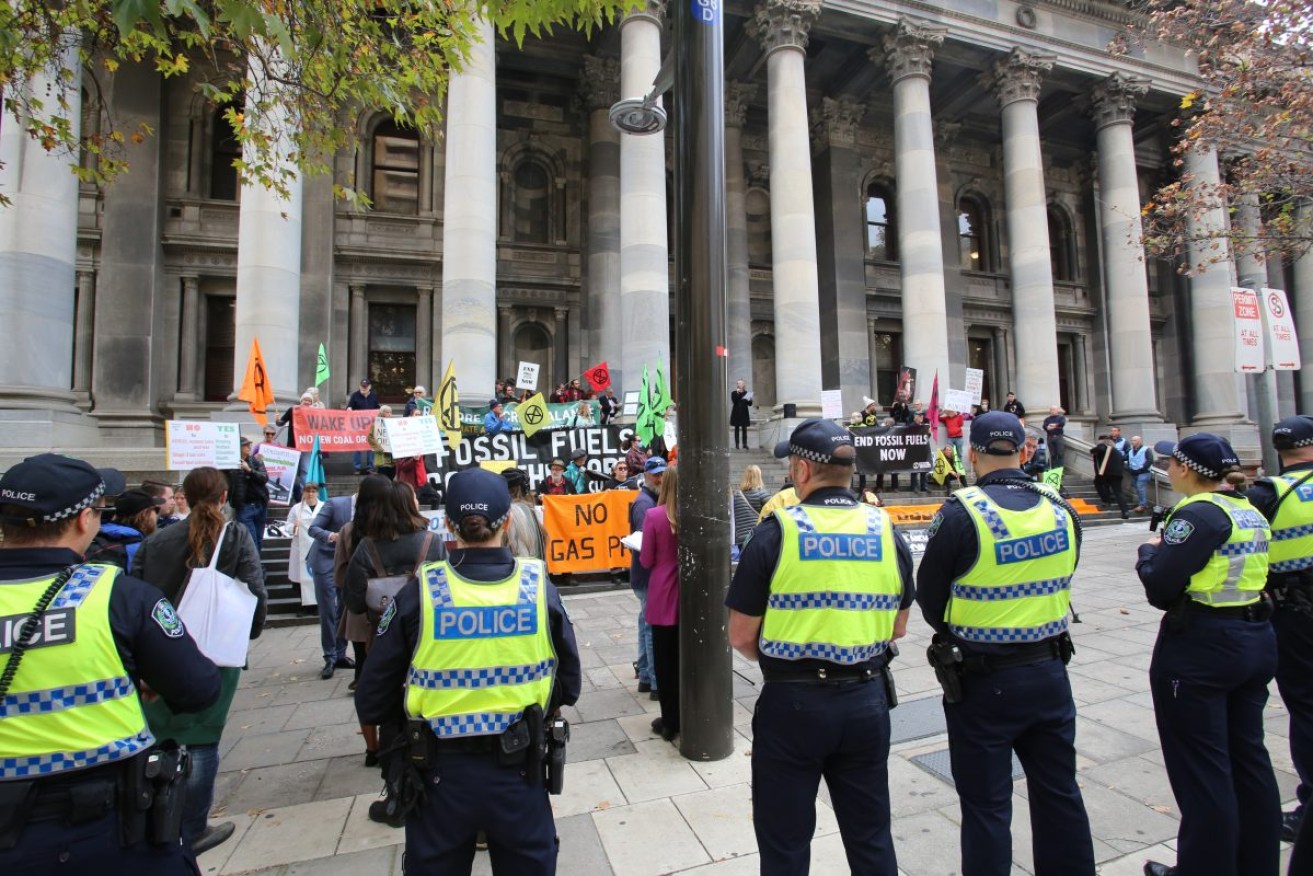The community impact of kneejerk lawmaking
Rushed state parliament legislation to counter climate protesters should raise serious concerns about the lack of debate, argues Sarah Moulds.

Photo: Brett Hartwig/InDaily
Some hardworking Adelaideans have had their lives impacted and inconvenienced because of the actions of Extinction Rebellion protesters last week.
These protesters believe their actions to be justified by the climate emergency our community faces, and the flow on implications for our health wellbeing and prosperity. This crystallises a moment that will continue to define the challenges posed by climate change to our democratic polity and institutions. Sadly, our Parliament has decided to respond to this moment in a way that is highly reactionary and uninspiring.
This could have been a moment for our elected members of Parliament to reach out into their communities and listen to the voices and perspectives of their constituents – not just those whose views are reflected in mainstream media reporting or in trending social media posts, but also to the people who quietly but just as importantly have thoughts to share.
Many of these constituents may well agree that the Extinction Rebellion protesters “went too far” on Wednesday. It is possible to hold this view and strongly defend the freedom of association that underpins the right of the people to raise their voices in response to what they consider to be significant threats or concerns.
Sadly, our Parliament did not embrace this moment for consultation. It did not want to have a conversation about how the law should respond to protests in the face of climate change. Instead, legislation was rushed through the lower house that increases the penalty for the existing offence of obstructing public places by more than 60 times.
This is not the first time legislation has been move through the South Australian parliament at breakneck speed. Every time it happens it sends a message to South Australians that their parliamentarians are not interested in what they think about lawmaking
The details of the Bill were not made available to the public, or even to members of the upper house of parliament, before it was passed in the lower house. No scrutiny of the legislation for its impacts on human rights was undertaken. No consideration of its effectiveness at minimising disruption that might arise from protest or its impact on those seeking to engage in authorised protest activity was undertaken.
No comparison with other laws in States and Territories was made available to parliamentarians before casting their vote. No explanatory material that would assist the community to understand why the Government considered this to be a necessary, proportionate, and effective law was provided. No legal analysis of its constitutionality considering the implied freedom of political communication could occur.
The need to pass this law so quickly was not clearly explained either. The individual involved in the protest on Wednesday had already been charged with offences that attracted penalties including fines and imprisonment. There was time to consider the views of the South Australian community on this important issue.
This is not the first time legislation has been move through the South Australian parliament at breakneck speed. Every time it happens it sends a message to South Australians that their parliamentarians are not interested in what they think about lawmaking. This is a disheartening message to send the community and in particular our young people who already experience disconnection from our public institutions, and whose lives are most profoundly impacted by the way we respond to climate change.
Regardless of your view on the actions of the protesters on Wednesday, we must resist the temptation to rush in with reforms that could silence and alienate. We need to actively seek out information and evidence that ensure are laws are the best they can be – effective, proportionate and practical. Enacting Human Rights Act for South Australia that includes a shared statement of rights and responsibilities that are important to our community would be a critical step towards this goal.
It’s clear we need to put some boundaries in place when it comes to kneejerk lawmaking in our State, or else everyone stands to lose something more than commute time.
Dr Sarah Moulds is Senior Lecturer in Law, Justice and Society, University of South Australia and Director, Rights Resource Network SA.




